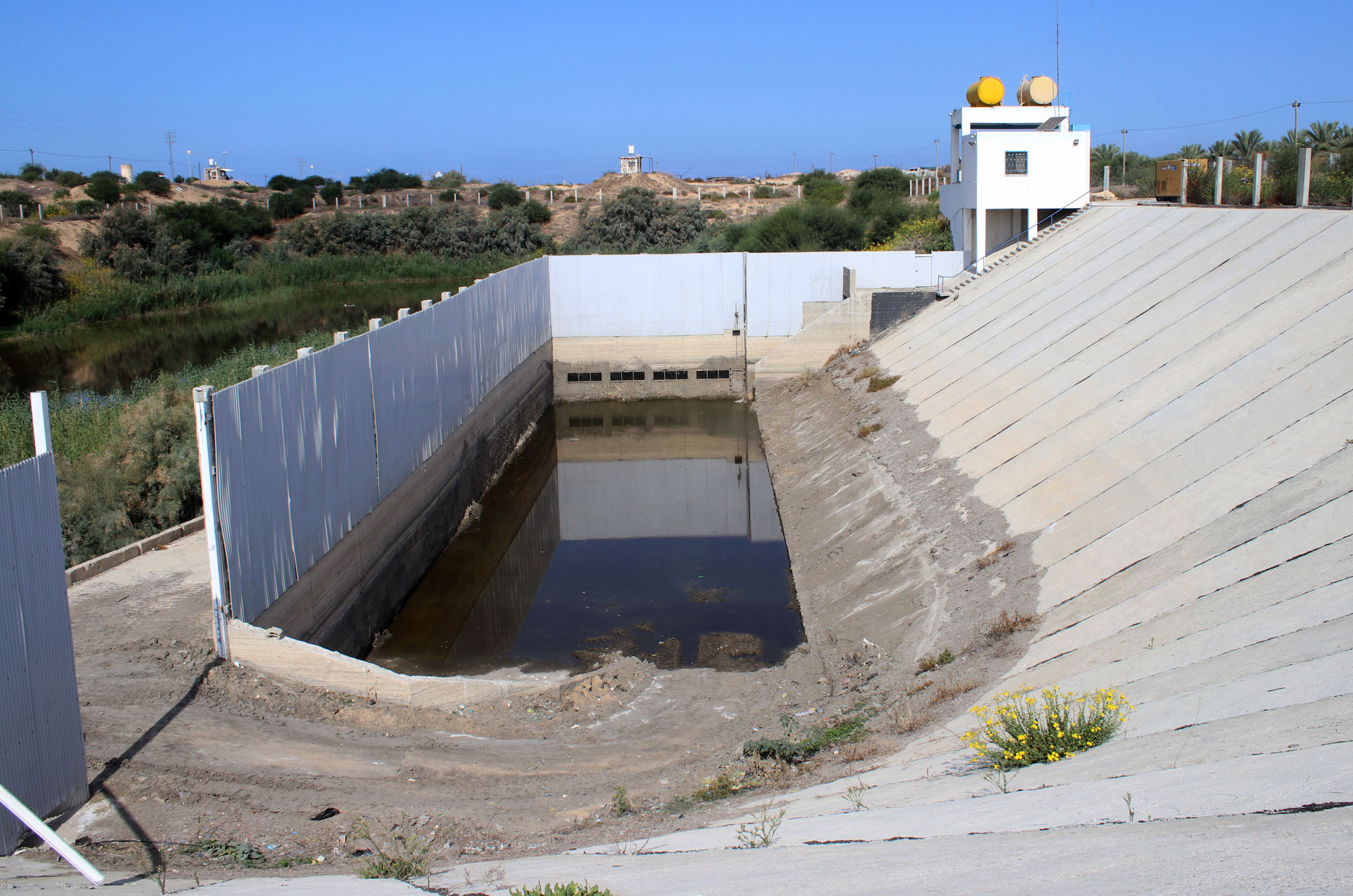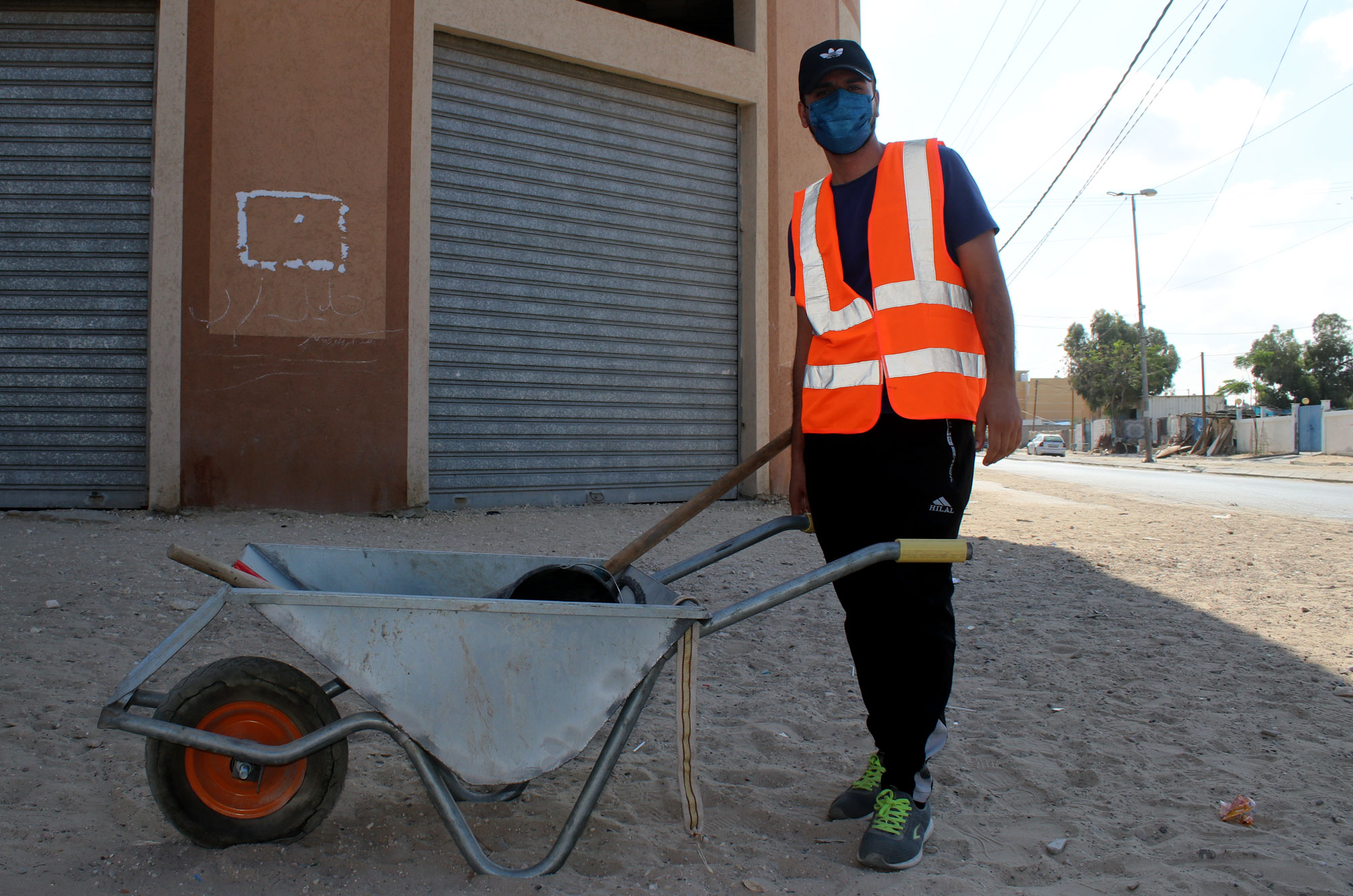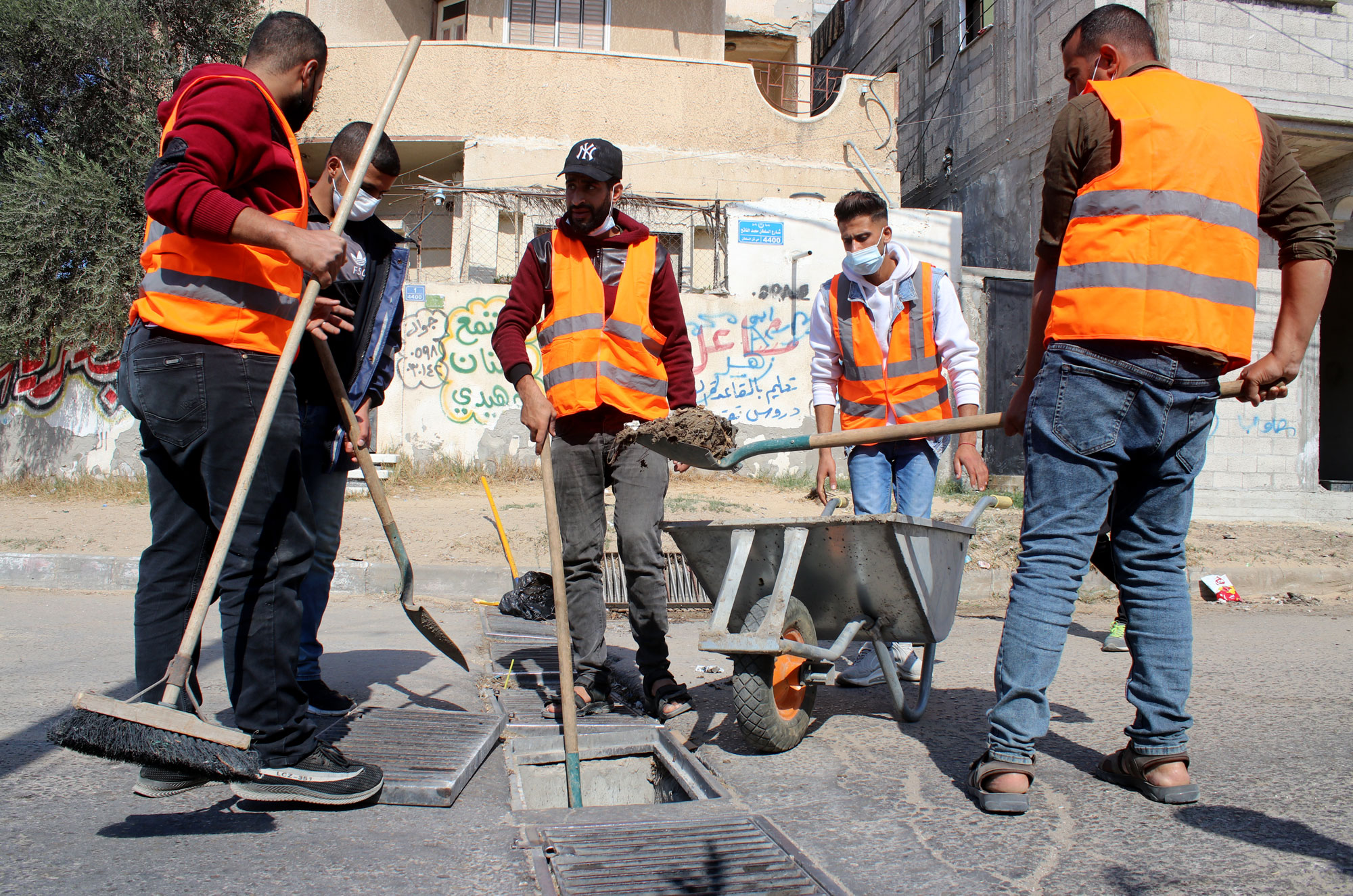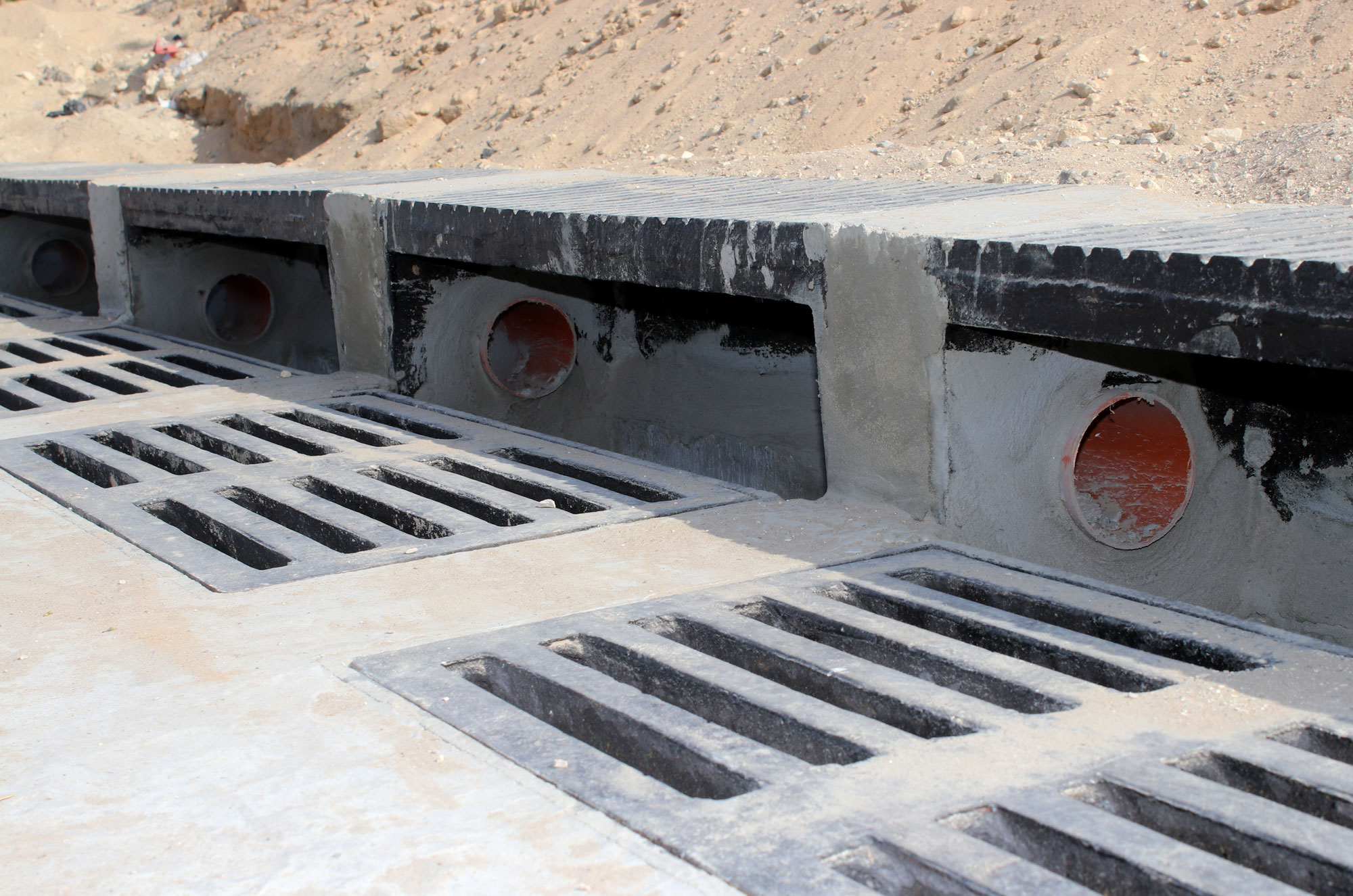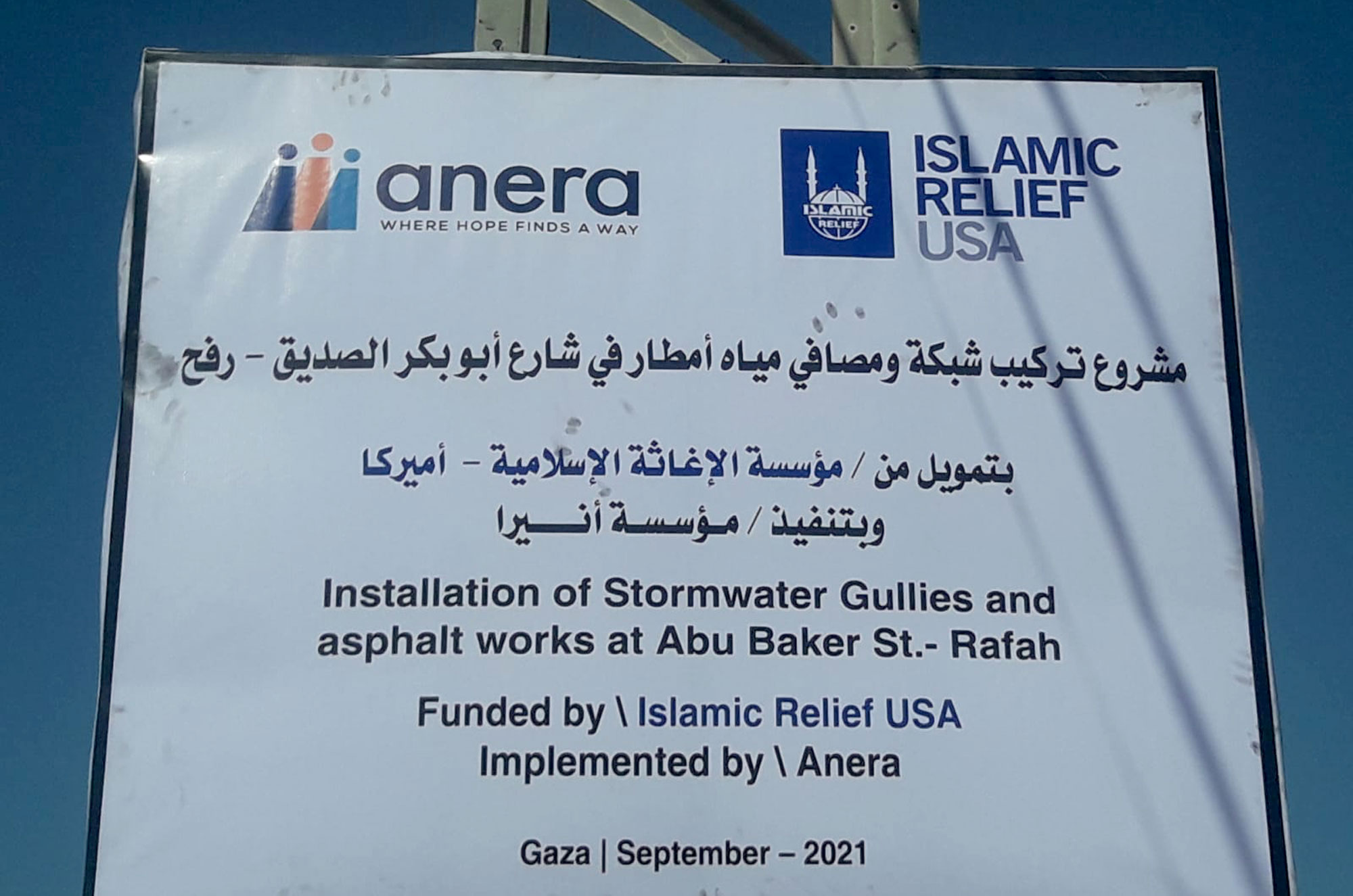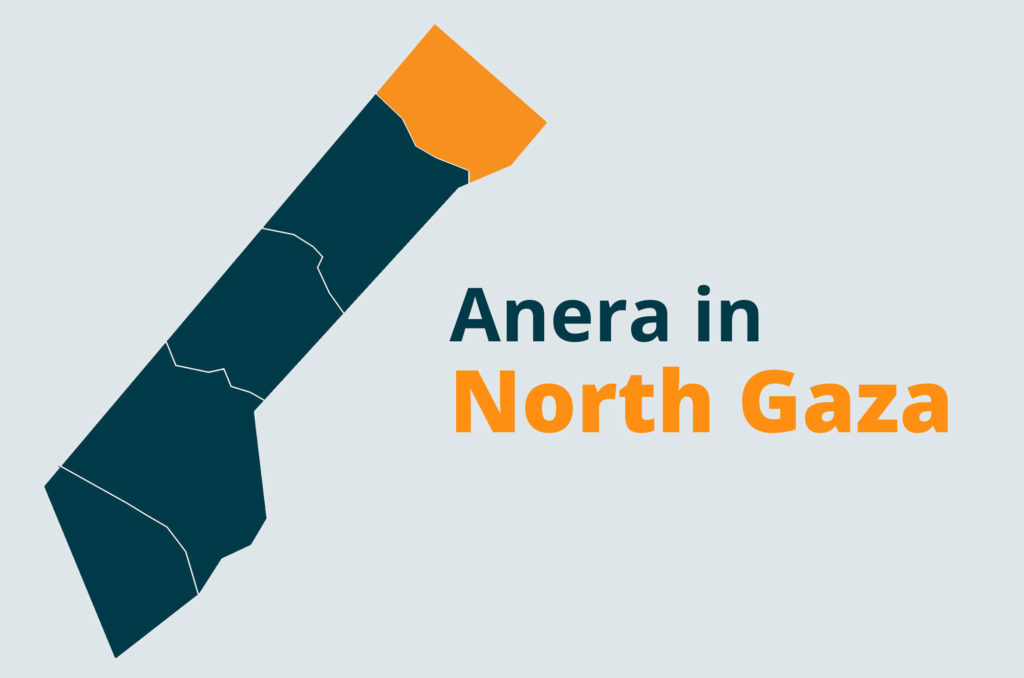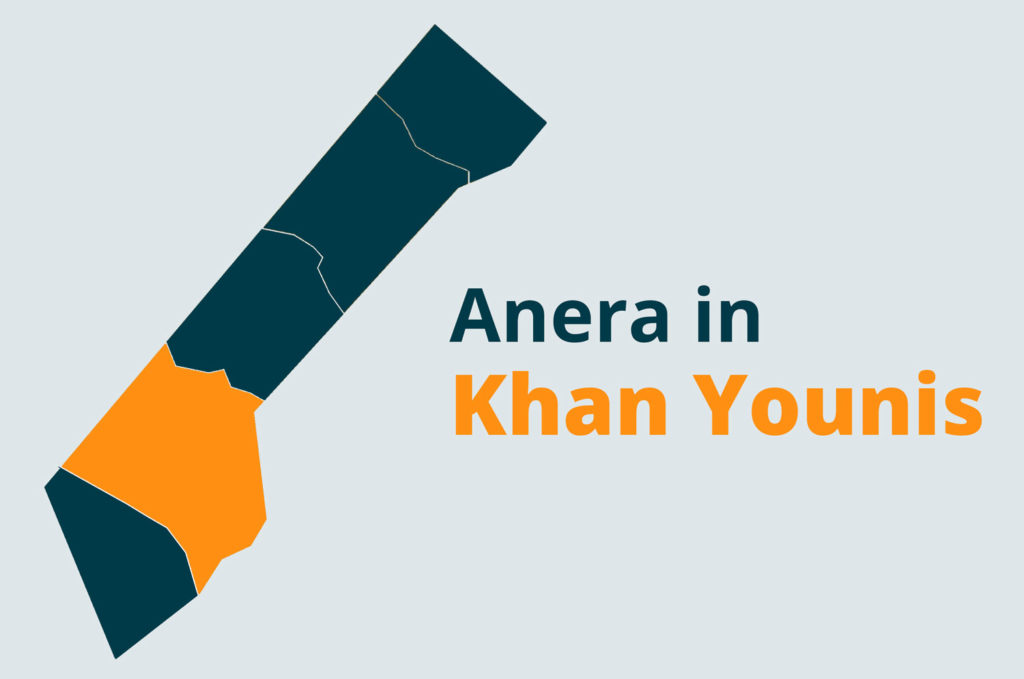Feb, 1968
Located in the southernmost part of Gaza, Rafah Governorate is home to about 171,000 people — 80 percent of whom are refugees from across historic Palestine.
محافظة رفح | Rafah Governorate
The majority of the governorate’s residents live within its largest city and district capital, Rafah. With a population of over 152,000, Rafah city is a major commercial hub in Gaza. The Rafah refugee camp – part of Rafah city – is the second largest in Palestine, with 99,000 residents.
The Rafah Governorate is home to the only border crossing into Egypt from Gaza. Gaza is under a blockade from both Israel and Egypt, so movement in and out of Gaza is carefully controlled. For some years, there existed an elaborate network of tunnels between Rafah and Egypt. The change of government in Egypt led to the destruction of the tunnels in the early 2010s, causing hardship in the Gaza economy by cutting off the flow of food, fuel, clothing and many other goods.
Gaza's only airport was located just south of the city. It operated only three years, until 2001, when it was bombed and bulldozed by the Israel Defense Forces.
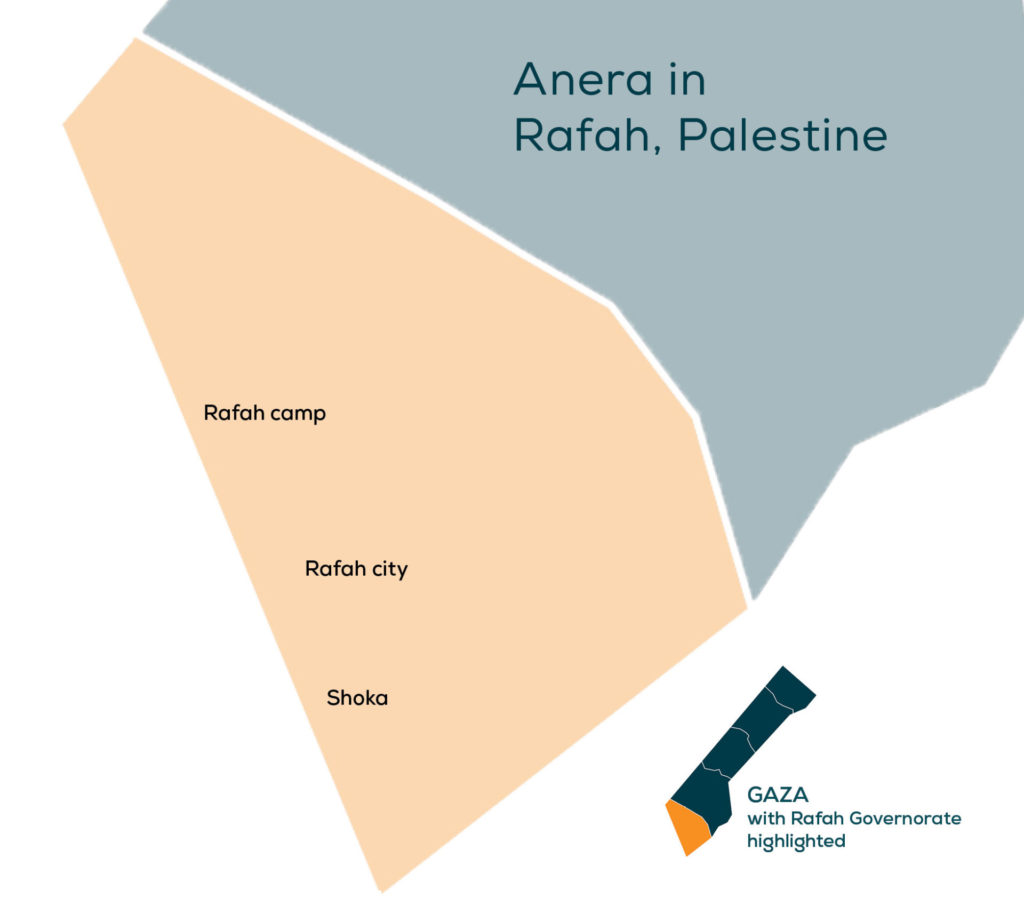

Agriculture in Rafah, Gaza
Some of Anera’s earliest work in the Rafah Governorate was with Palestinian farmers and agricultural communities. In the early 1990s, Anera provided funding to the Rafah Agricultural Cooperative to mechanize their operations and reclaim fallow lands.
In the early 2010s, as Gaza was still recovering from the heavy bombardment of 2008-09, Anera introduced a chicken project to help families provide food and income for themselves. We distributed to 500 families in Gaza City, Khan Younis, Rafah, and Beit Lahia a pyramid-shaped cage, 50 kilos of feed,10 chickens and a rooster.
A few years later, Anera started a program to help farming families reclaim their lands that were damaged from the 2014 bombardment. Families lacked the financial resources to recover on their own. We provided agricultural tools, irrigation lines, and seedling and re-introduced composting. Farmers planted sweet potatoes, olive trees, citrus trees, and other crops.
“They call me the manager and bookkeeper. We cultivated 10 tons of sweet potatoes and made almost $6,700 to cover our needs for the coming year. We’re going to get school uniforms, textbooks and new seeds for the next season,” says Aysha, a farmer in Rafah.
In the latter 2010s and the early 2020s, Anera began installing greenhouses on small family plots of land or on rooftops. Greenhouses are perfect in places like Gaza, where water is scarce and the sun is strong. Anera has installed scores of greenhouses across Rafah. And, the program has evolved to include greenhouses that sit atop roofs and use a wicking system that conserves water and soil use.
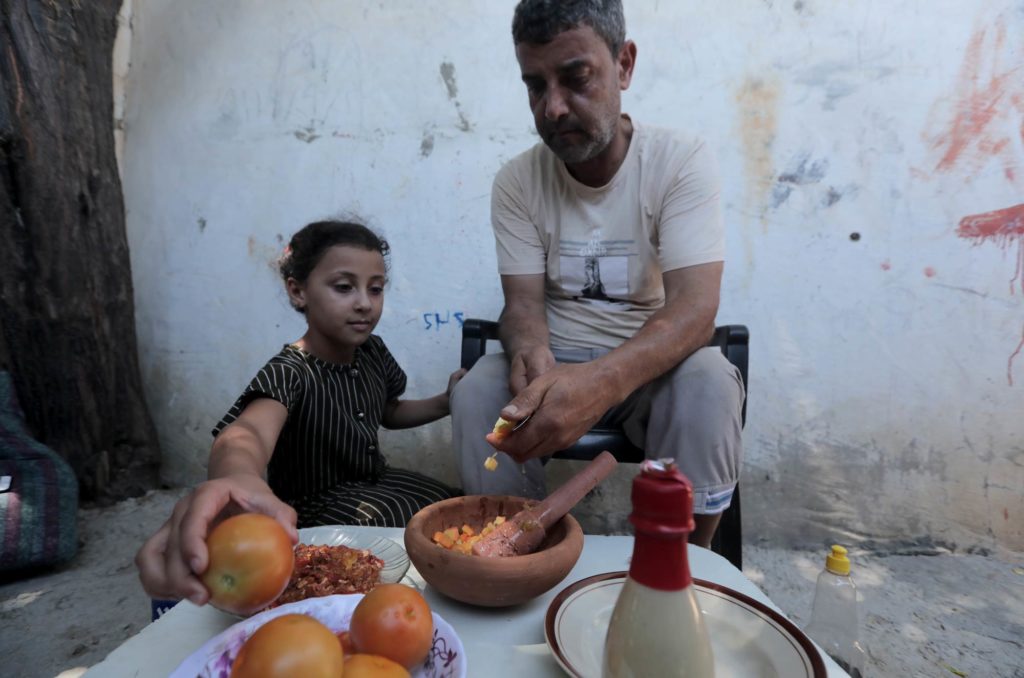
Water and sanitation in Rafah
Water access, sewage management and sanitation are all important tenets of Anera’s water work in Rafah and across Palestine. Anera has installed, renovated and repaired water wells, water and sewage networks.
In the 2010s, we worked in the Shoka area, located in the eastern part of the Rafah Governorate. Shoka residents were suffering from severe domestic water shortages. Anera constructed a 53,000-gallon (2,000m3) reservoir and pumping station, and installed almost two miles (3,050 meters) of pipes that connected the tank to people’s homes. The 15,000 residents of Shoka now enjoy a steady supply of water in their houses.
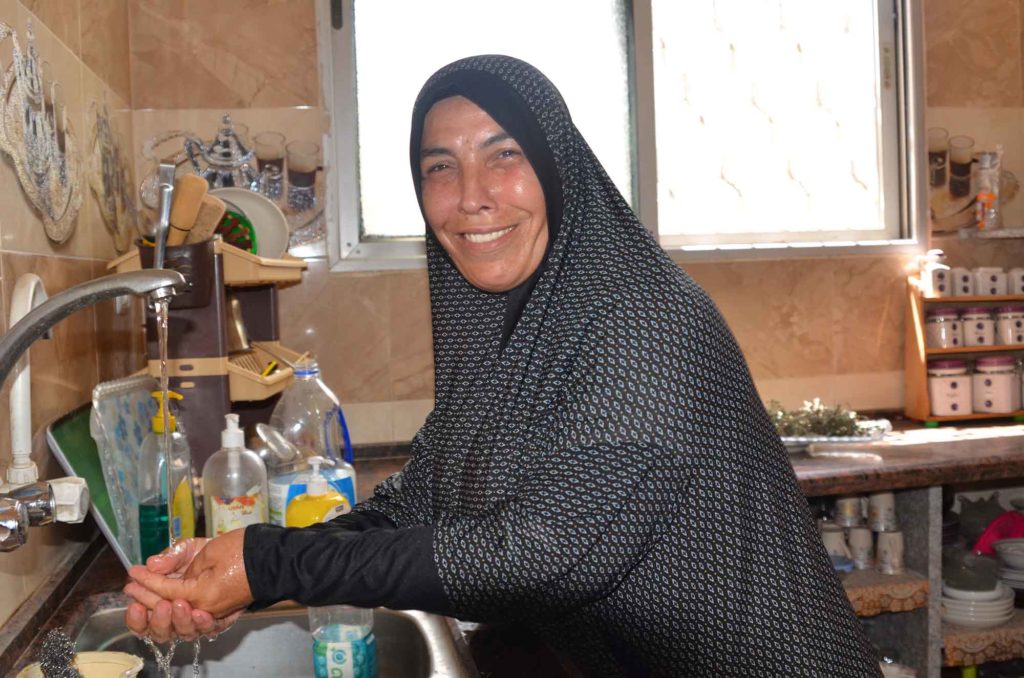

Anera also, in the same time period, replaced and upgraded the main distribution water networks in Jeneina, Mashroa, Barazil and El Salam areas of Rafah city. Some 50,000 area residents were experiencing chronic shortages of water in their homes, because of inadequate carrier lines and deterioration of the main water conveyor. Anera provided better water service to residents by installing over two miles (3,284 meters) of new pipes and putting in place a series of manholes for future maintenance.
Stormwater systems
Anera also installed stormwater pipelines and 30 gullies on Abu Baker Street, located in western Rafah. Before our intervention, during rainstorms, the street and neighborhood would flood, causing great damage to property and disruptions to people’s lives. Anera’s gullies and pipelines now carry the precious rainwater to the Atar stormwater basin, which replenishes Gaza’s water aquifer, sparing 30,000 residents from annual flooding. This project also serves the Hamad Ben Jasem Hospital.
Reverse osmosis
Throughout Gaza, we are installing reverse osmosis desalination systems on schools, health facilities, community centers and irrigation systems. In the early 2020s, we attached one of these systems to an irrigation network in Rafah to remove the brine from the groundwater that farmers use for their crops. Interventions like this have a dramatic impact on the crop yields and quality.
Sewage systems
Narrow sewage pipes in all of Gaza are often decades old and constructed from asbestos. Their narrow diameter results in sewage overflows and the pipes in many places have completely eroded due to asbestos’ vulnerability to septic material. Anera repairs sewage systems with durable, wide PVC pipes, connecting them to hopes and to sewage treatment facilities. We completed a sewage project like this in Rafah city and Shoka, which not only benefits more than 3,000 residents, but also prevents contamination of the Mediterranean and the area’s groundwater.
Healthcare in Rafah
Medical aid
The medical aid program is Anera’s flagship work in healthcare. Since Anera’s founding, we have distributed more than $600 million worth of medicines and healthcare supplies across the Middle East. Facilities in Rafah are among our hundreds of recipient care providers.
One vital Gaza organization we have worked for many years is the Gaza Central Blood Bank. This is the only nonprofit blood bank in Gaza, and it has two branches in Rafah and Khan Younis, in addition to its headquarter office in Gaza City. Anera has provided the blood bank with donated healthcare supplies and with equipment of all kinds, including refrigerators, centrifuges, chemistry analyzers, CBC machines and more.
Anera distributed a pair of new TOMS Shoes to thousands of children at more than a hundred preschools across Gaza from the south to the north, including Rafah, Khan Younis, Gaza City and Beit Lahia.
Milk for Preschoolers
From 2003 to 2011, Anera’s Milk for Preschoolers program delivered fortified milk and biscuits to preschool children across Gaza. The snacks provided the children with vitamins that were deficient in their diets, such as vitamin A. Sixteen preschools in Rafah participated in the program. Not only did preschoolers in the area enjoy these healthy, daily snacks, but dozens of teachers learned how to teach parents and children how to be as healthy as possible in the tough conditions of Gaza. Anera trained the teachers in interactive methods, such as puppet theaters and storytelling, so they could create lessons that emphasize good health habits.
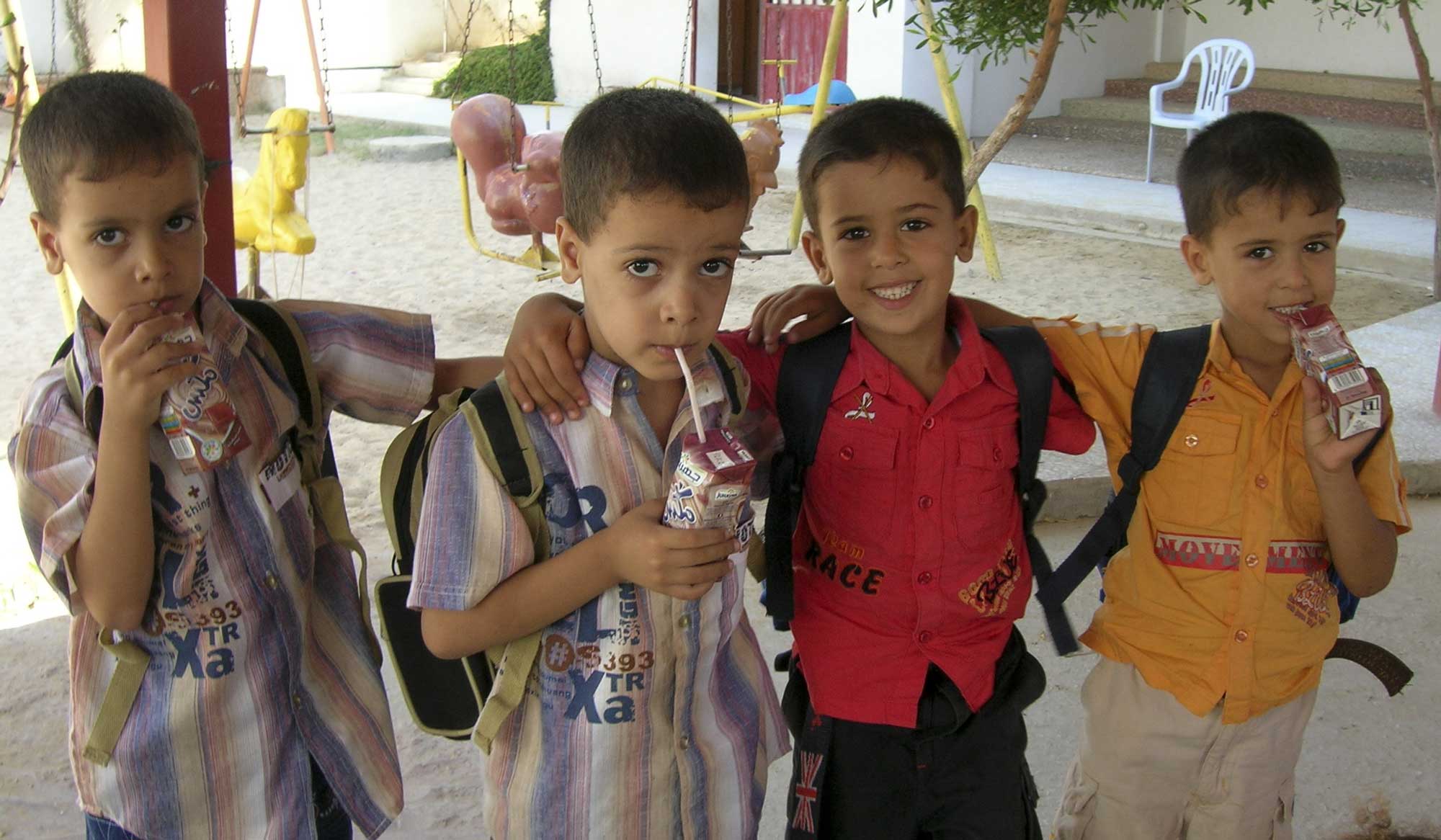

Education in Rafah
Early childhood development
Since the early 2010s Anera's early childhood development program has been reaching hundreds of preschools all over Palestine, providing improved infrastructure, education and development for preschool-aged children. We build and renovate schools, train teachers, distribute learning materials and toys, conduct health-oriented activities, and involve caretakers in school life.
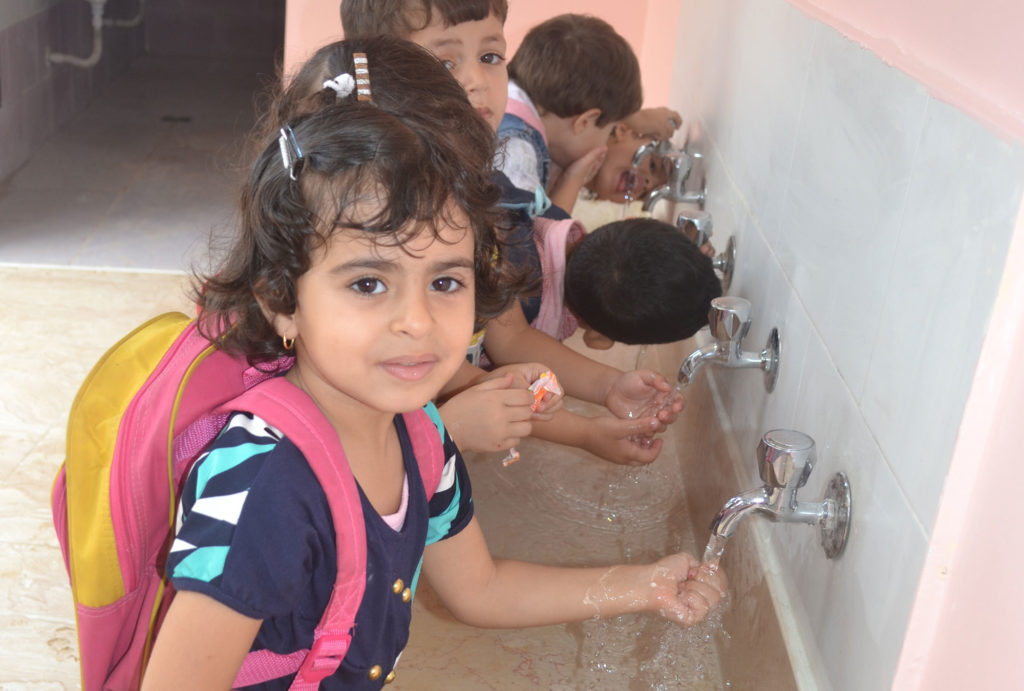
Anera has renovated 15 preschools in the Rafah Governorate, transforming dilapidated spaces into friendly learning environments. One school we renovated in the mid-2010s was the Karameesh Preschool. The walls had not been repainted for years, the playground equipment was outdated and broken, and the bathrooms were in bad shape. Anera painted the walls vivid colors, installed new bathrooms and a new drinking fountain, replaced the outdated playground equipment, and provided child-friendly furniture.
“What Anera did is great. I can’t describe this as just a renovation, it is a total transformation of the preschool into a friendly, educational environment for the children,”
said Eman El Dena, the Karameesh Preschool (above) director.
Anera also bolstered learning programs by equipping the schools with fun learning materials, training teachers in creative teaching techniques, and distributing bookbags filled with children’s books to kids.
Scholarship program
For 30 years, Anera supported seven schools in Palestine, Lebanon and Jordan through our scholarship program. The program began in 1979 to raise private donations to help cover the educational costs of economically disadvantaged and/or special needs children in the West Bank, Gaza, Lebanon, and Jordan. Anera donors contributed $175 for each scholarship and could specify the student’s gender, school, or geographic location. One of the schools in our scholarship program was located in Rafah: the Palestinian Women’s Union.
Grants
Grant-giving was one of Anera’s earliest ways of getting support to trusted local organizations in Palestine, helping them build capacity and keep operating as resources grew scarce. Schools were among our grantees. In 2003, for example, in Rafah, Anera gave grants to the Najda Charitable Society and AI-Quds preschool.
Education enhancement centers
In the late 1990s, Anera created educational enhancement centers to provide an opportunity for students in Gaza to reinforce and supplement their formal education. Anera established centers in the Maghazi, Rafah, and the Deir AI Balah camps. Anera provided computers, books, educational toys, recreational equipment, renovation/repairs and funding for salaries. Each center was managed by a committee composed of camp residents.
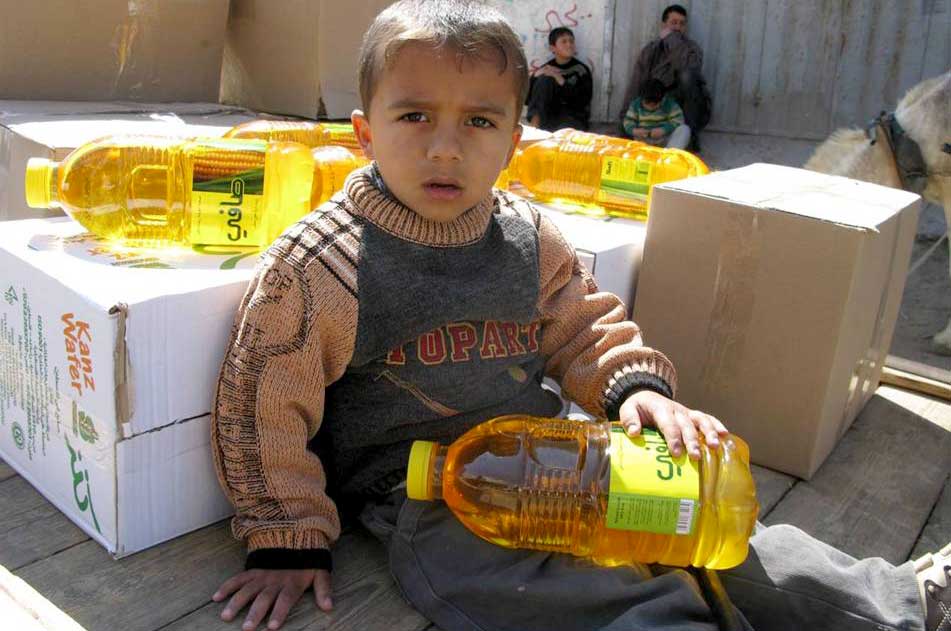

Humanitarian relief
Rafah, like the rest of Gaza, has been under blockade since 2007 and has experienced many bombings in the years since. And Anera is there to help with humanitarian relief when Rafah residents are in crisis.
Food aid
In the wake of the 2008-09 bombardment, Anera distributed food packets, purchased and prepackaged in the West Bank, to affected families in Khan Younis, Rafah and Gaza City. Each packet contained cooking oil, rice, lentils, baby food, tuna and other foods - enough to feed a family of six for over a week. A total of 1,913 families received food packages.
Starting in the early 2010s, Anera has provided food aid across Gaza during Ramadan. This aid originally came in the form of food parcels for hundreds of families in Rafah. The packages included vital items for both iftar and suhoor meals during Ramadan. In the early 2020s, we pivoted to vouchers so that families can do their own shopping at local supermarkets. These interventions are a lifeline in a place where unemployment rates are staggeringly high and some 80% of the population relies on humanitarian assistance.
Hygiene kits
In the wake of the 2014 bombardment, Anera distributed hygiene kits to more than 1,700 displaced families at UN shelters in Rafah and the other governorates. And, in 2010, as Gaza continued to recover from the bombings of 2009, Anera distributed hygiene and food kits to 6,000 families in the Maghazi and Rafah areas
Psychosocial support
The succession of bombardments in Gaza have caused real trauma for the people who live in the small territory. Many, especially children, display post traumatic stress disorder even if they were not in the areas under bombardment. In response to the bombings of August 2022, to alleviate the effects of conflict, Anera launched a series of psychological intervention camps for children in the northern and southern areas of Gaza. The camps allowed children to play with their supervisors and interact with music and songs. Art sessions encouraged children to draw their emotions. The camps focused on children aged three to six in areas hard hit by the bombing, such as Jabalia in the north and Rafah in the south. The number of participating children reached 100 in each camp.
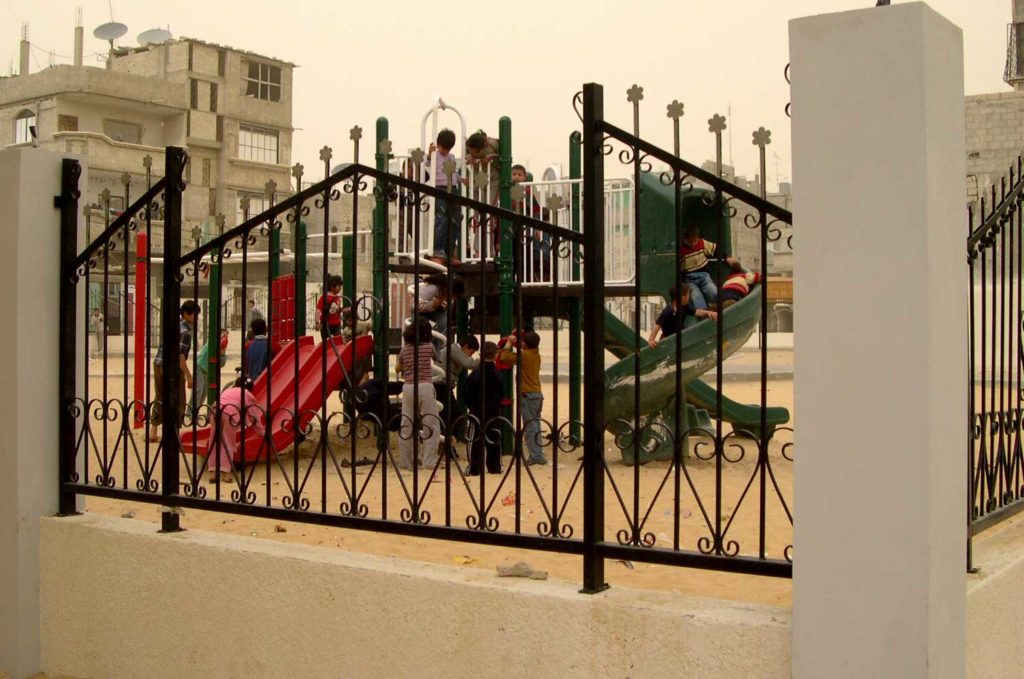

Community
Playground
In partnership with Playgrounds for Palestine, Anera installed a playground at a preschool in Rafah. Playgrounds provide vital space for children to have fun, not just the kids at the school, but the children in the surrounding area.
Women’s empowerment
In 1995, Anera started the Gaza Women’s Loan Fund to support women entrepreneurs starting small businesses across Gaza. The loans ranged from $1,000 and $3,000 and they supported micro-businesses such as kiosks that sell clothing and household items, animal husbandry products for raising pigeons, rabbits and chickens, and home-based food processing. Many women in the Rafah area have benefited from the fund and were able to start businesses.
One of the key ways that Anera empowers women in Gaza is by supporting women’s cooperatives. Cooperatives provide women space outside of their homes to pursue income-generating activities, learn new skills, get access to psychosocial services, engage in physical exercise, and build community with one another. Anera supports women’s cooperatives by providing shared equipment, renovating facilities and delivering training on topics such as marketing. For instance, in 2022, over the course of seven days, a group of Gaza women came together to focus on honing their skills in marketing, administration and finance. Maryam Abu Mohsen, a member of the Rafah Women's Cooperative, participated and learned a lot about the legal aspects of running a business and e-marketing through social media platforms.
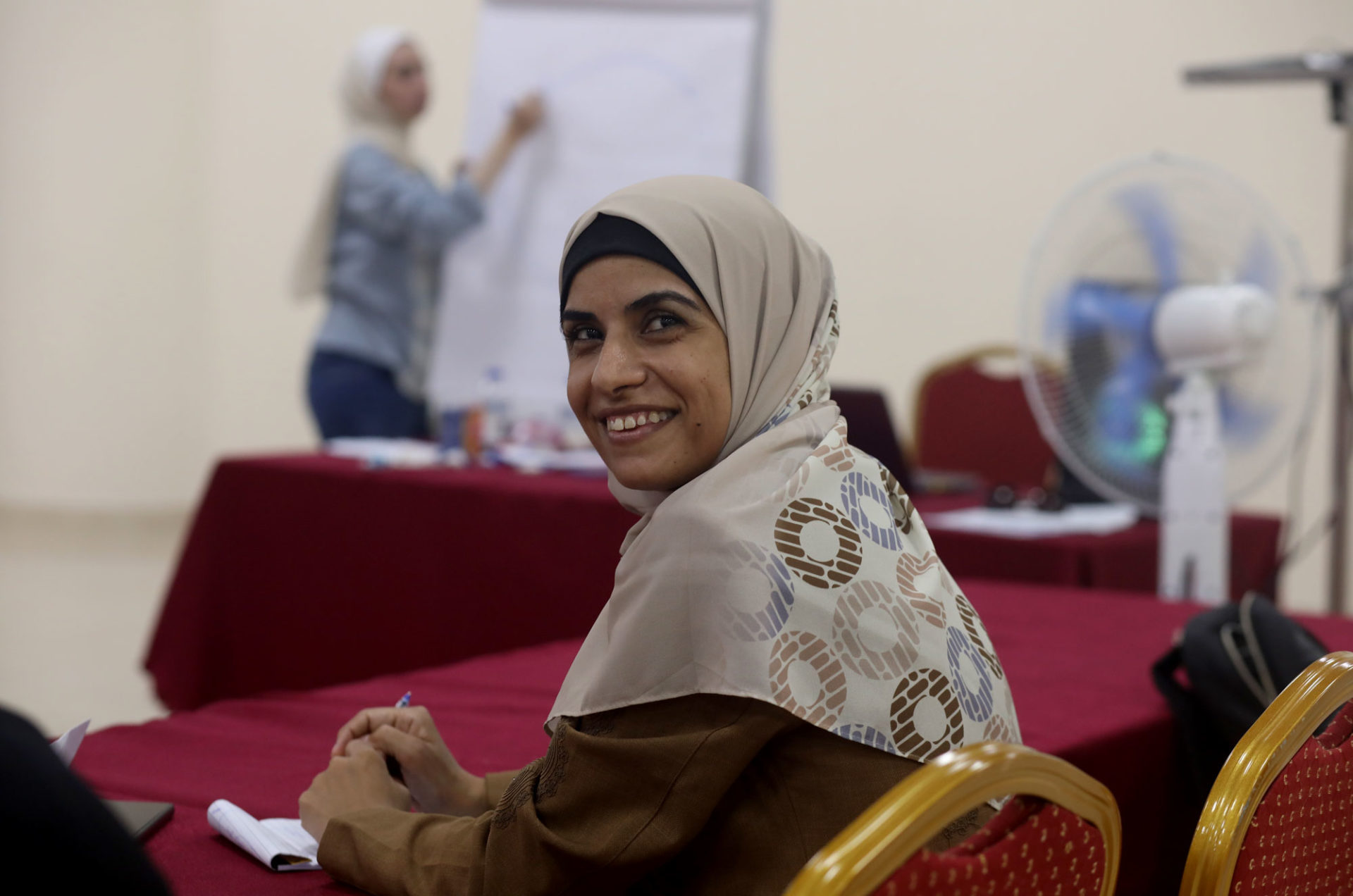

"It’s a wonderful experience. I love the teamwork in our projects, from food processing to preparing and serving meals,”
said Maryam, a member of the Rafah Women's Cooperative

